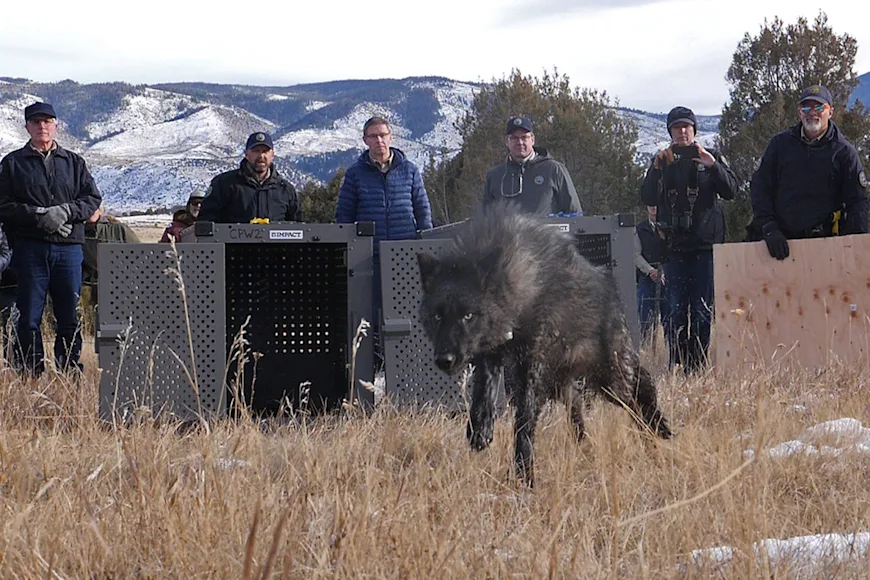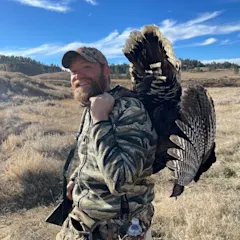In October 2023, the Confederated Tribes of the Colville Nation, based in eastern Washington state, accepted a request from Colorado Parks & Wildlife (CPW) to live-capture 15 wolves on their 1.4 million acre reservation and transport the animals to Colorado to aid in the state's ongoing wolf reintroduction program. According to a June letter addressed to CPW Director Jeff Davis, the Colville Tribe has since withdrawn from that agreement, saying CPW failed to consult with [Colorado's] Southern Ute Tribe while planning wolf release efforts in the state.
Colorado voted to reintroduce wolves in November 2020. The ballot initiative, known as Proposition 114, passed on a slim margin with rural voters generally voting 'no' and many urban Front Rangers voting to approve the plan. The Southern Utes' Wildlife Advisory Board, which manages wildlife on the tribe's 680,000-acre reservation along Colorado's southwestern border, publicly opposed Colorado's voter-mandated wolf reintroduction program as early as October 2020. Among other factors, the board cited potential negative effects to the Tribe's hunting and fishing-related interests in southwestern Colorado.
In opposing wolf reintroduction, the Southern Utes raised concerns about negative impacts the transplanted predators could have on both the Southern Ute Reservation and a broader 3.7 million-acre section of the San Juan Mountain region known as the Brunot Agreement Area. The tribe was forced to surrender the Brunot Area to the federal government in 1873, but they retained hunting and fishing rights and today the tribal council sets separate seasons and hunting regulations in the area for Southern Ute tribal members.
"[We] looked at impact of livelihoods, livestock on the reservation as well and wildlife, [such as] elk and deer," Southern Ute Tribal member and Wildlife Advisory Board member Lance Taylor said in 2020 when the board announced its position on wolf reintroduction. "I We feel the Shiras moose and the elk populations would be most affected.”
In the 2020 statement, Taylor went on to say that other tribes in the area, including the Ute Mountain Ute tribe, the Navajo Nation, the Northern Utes, and the Jicarilla Apache, had all issued similar resolutions opposing Proposition 114. In his June letter to CPW, Jarred-Micheal Erickson, Chairman of the Colville Business Council, said his band of confederated tribes made the decision to withhold the 15 wolves they'd planned to send to Colorado out of respect for the sovereignty, cultures, and memberships of Indian tribes in Colorado and neighboring states.
"It has come to our attention," Erickson wrote, "that necessary and meaningful consultation was not completed with the potentially impacted tribes." Neither the Southern Ute Tribe nor representative with the Colville Reservation responded to requests for comment when contacted by Field & Stream.
Read Next: Wolves Transplanted to Colorado Are Now Reproducing
In an emailed statement provided to the Denver Post, CPW spokesman Joey Livingston said the agency is seeking other sources of live-captured wolves for its scheduled wolf release this coming December, but he declined to discuss any specifics about those negotiations. “We continue speaking with other potential sources of wolves,” Livingston said, “and will take great care in implementing the plan to create a self-sustaining wolf population while minimizing impacts on our landowners, rural communities, agricultural industries and partners."


